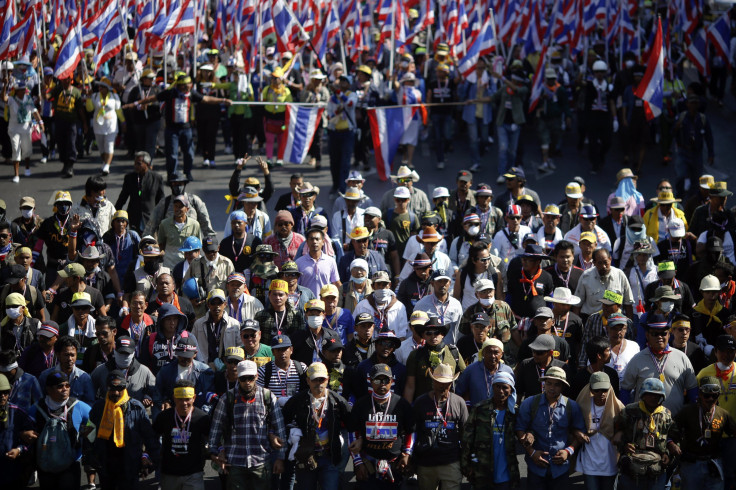Thailand's Political Protests Taking A Toll On Myanmar's Economic And Infrastructure Development

Thailand’s political strife is having a negative impact beyond its borders as important investment projects in Myanmar are being shelved as a result of the paralyzed Thai government.
Anti-government protests, continuing from December, are without a doubt wreaking havoc on Thailand’s domestic economy, and have all but paralyzed the government and civil service activities. As a result, major Thai investments abroad, including many planned ventures in neighboring Myanmar like the Thailand-Myanmar joint venture Dawei port and industrial zone on Myanmar’s southeast coast, have been frozen, the Irrawaddy reported on Tuesday.
Thailand is currently the second-largest foreign investor in Myanmar with $9.98 billion in approved investment at the end of October last year, after China.
Myanmar and Thailand only recently reached an agreement to jointly develop the Dawei port, which has already suffered multiple financial setbacks as funding could not be secured. Japanese investors declined to invest in the project.
“In reality [Dawei] is dependent on the Thai side developing infrastructure that will link Dawei to the rest of Southeast Asia by road and railway,” Bangkok independent energy industries consultant Collin Reynolds told the Irrawaddy. But the Yingluck Shinawatra government has had to resign authority to a caretaker government until the next round of elections.
“The [Thai] courts have effectively blocked most funds to the caretaker government and it is hard to see any election going ahead as planned on Feb. 2,” Reynolds added.
The Dawei project will eventually include an oil trans-shipment port, a refinery, steel mills, petrochemical plants and a major electricity generating station, if companies involved can get the funding. The development also includes road, railway and oil pipeline routes running from Dawei into Thailand to link up the north-south transport infrastructure.
Plans from the Thai government for a new network of high-speed railways linking Thailand, Laos, China, Myanmar and Malaysia are similarly on hold.
“The [Thai] government has seen its flagship 2 trillion baht ($60.6 billion) infrastructure investment bill hobbled by the political crisis,” according to the Financial Times.
© Copyright IBTimes 2025. All rights reserved.





















